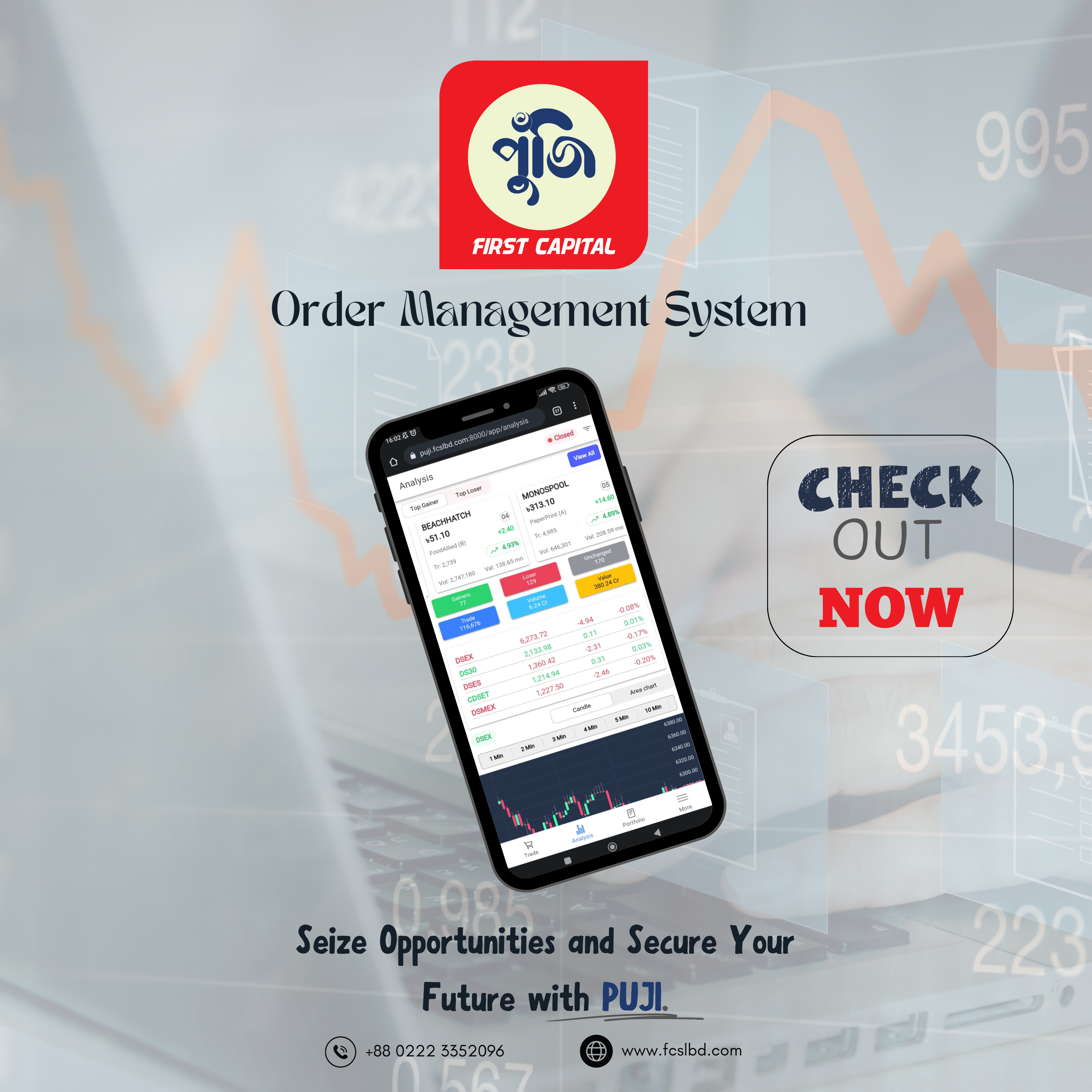The interest rate rise resulting from the policy rate increase for the second half of FY24 threatens to exacerbate liquidity crisis in the stock market, as investors are likely to divert funds to fixed-income assets.
But experts doubt such an outcome on the premise that the market is already battered by investors’ apathy.
Economist Dr Zahid Hussain sees investors’ mistrust as the bigger setback for the market than the policy measure.
Md Moniruzzaman, managing director & chief executive officer of Prime Bank Securities, said the extent to which the policy rate hike would influence the market would be minimal as the interest rates of Treasury bills and bonds had already been at an elevated level.
However, a higher interest rate aimed at wiping up extra money from the economy will hamper the profitability of highly leveraged listed firms.
On the other hand, it will go in favour of multinational companies and firms having high cash or cash equivalent assets.
“They will earn a handsome income from bank deposits. But highly leveraged firms will see interest expenses climb up,” said Mohammad Emran Hasan, former chief executive officer of Shanta Asset Management.
Berger Paints, Marico Bangladesh, and Reckitt Benckiser will earn more from their high volumes of liquid assets.
Aman Feed, Apollo Ispat, and Wester Marine Shipyard are among the firms that will bear mounting repayment burden against debts.
The central bank cut the private sector credit growth target to 10 percent from 11 percent for the period as it expects the demand for credits to slow down.
On Wednesday, it increased the benchmark policy rate by 25 basis points to 8 percent for January-June in efforts to reduce demand and rein in the prices of consumer goods.
Globally, central banks raise repo rates to discourage banks from borrowing from them. This ultimately reduces money supply to the economy and thus helps arrest inflation.
Rising interest rates will make fixed-income securities, such as Treasury bonds and bills, corporate bonds, and fixed deposit receipts (FDR) more lucrative to investors, said Mr Hasan.
Though Moniruzzaman, of Prime Bank Securities, rules out an outflow of funds from stocks to fixed-income instruments, he thinks the crawling peg system to regulate the exchange rate may have a positive ramification if it can stabilise the foreign currency market.
A good number of companies have seen their profits being eroded due to the devaluation of the local currency against the dollar. If the dollar market attains stability, it will help stem unusual fluctuations in the value of the taka, Moniruzzaman explained.
The crawling peg system will be linked to a carefully selected basket of currencies and will operate within a predefined exchange rate corridor, said the BB.
Banks’ earnings likely to go up
Mohammad Emran Hasan, former CEO of Shanta Asset Management, said costlier credits would be favourable to banks, except for those whose cost of funds was already high.
For example, Citizens Bank, Global Islami Bank, Union Bank, Padma Bank, and BASIC Bank are offering deposit rates ranging from 7 to 8 percent on an average, whereas their average lending rates hover between 9 to 10 per cent. The interest spread is thin — 2 to 3 per cent, which makes them highly unlikely to be benefitted by the hike in interest rates.
These lenders have been blemished by high non-performing loans, which is why they feel compelled to offer higher rate to lure savers.
There are banks having better financial health as well.
Islami Bank Bangladesh, City Bank, and Eastern Bank’s average deposit rate is 3.5 to 4.5 percent, while the average lending rate is 8 to 9 per cent.
They could maintain a wider interest spread to secure a profit growth and are expected to accelerate the growth supported by the monetary policy tightening.
Syed Mahbubur Rahman, managing director & CEO of Mutual Trust Bank (MTB), also expressed optimism about banks’ performance in the escalated interest rate regime.
Source: thefinancialexpress




